MercoPress. South Atlantic News Agency
Tag: China
-
Thursday, August 23rd 2018 - 08:21 UTC
Despite trade talks, US and China will impose fresh tariffs beginning Thursday

United States and China are expected to impose fresh tariffs on US$ 16bn of each other's goods on Thursday as their tit-for-tat trade war rages on. The second round of tariffs will see a total of US$ 50bn worth of goods from each side that will now be taxed. Since the opening salvo in July, tensions between the world's two largest economies have escalated, hurting their companies and economies.
-
Friday, August 17th 2018 - 12:33 UTC
Google employees protest plans for a “censored search engine” in China

Hundreds of Google employees have written to the company to protest against plans to launch a “censored search engine” in China. They said the project raised “urgent moral and ethical questions” and urged the firm to be more transparent.
-
Friday, August 17th 2018 - 08:58 UTC
Argentina struggling to tame markets and inflation; talks for a currency swap with China
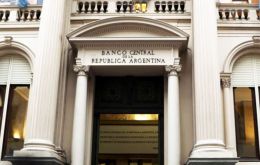
Argentina’s central bank said on Thursday it hiked reserve requirements by 3 percentage points for the country’s largest banks, as it tries to keep its plan for reducing short-term debt from adding to already high inflation.
-
Thursday, August 16th 2018 - 09:36 UTC
US Defense secretary pledges closer ties with Argentina; condemns China's “predatory economics”
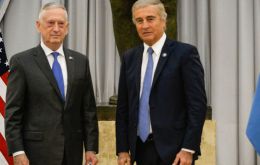
United States Defense Secretary Jim Mattis on Wednesday pledged closer defense cooperation with Argentina. Standing beside his Argentine counterpart, Oscar Aguad, Mattis said the military partnership can be strengthened and alluded to the help the U.S. Navy provided Argentina last November when one of its submarines went missing with 44 sailors aboard.
-
Tuesday, August 14th 2018 - 07:36 UTC
The Year of the Pig for Chinese couples could mean a third child

A series of postage stamps featuring two pig parents and three happy piglets has prompted speculation that China may be about to further ease its restrictions on the number of children to deal with its rapidly ageing population.
-
Saturday, August 4th 2018 - 11:54 UTC
Trade war: “China's countermeasures are rational”, argues Beijing
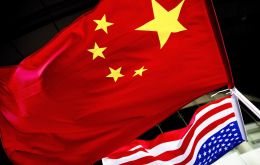
China’s state media said on Saturday the government’s retaliatory tariffs on US$60 billion in U.S. goods showed rational restraint, although in an opinion piece it still admonished the United States for blackmail and bullyboy tactics.
-
Wednesday, August 1st 2018 - 08:59 UTC
Change of Chinese import duties impacts on Jaguar Land Rover profits

Jaguar Land Rover (JLR) has reported a loss for the first time in three years after sales slowed in China. The UK's biggest car firm, which is owned by India's Tata Motors, blamed the setback on “multiple challenges”.
-
Wednesday, August 1st 2018 - 07:12 UTC
China and Argentina ties increasingly closer
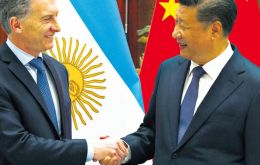
China's offer of financial support to Argentina is the latest example of the Asian nation filling a vacuum in what has traditionally been the backyard of the U.S. While President Donald Trump has not paid a visit to Latin America since his inauguration in January 2017, China has stepped up its financial assistance to Argentina and worked to strengthen their trade ties.
-
Monday, July 30th 2018 - 09:44 UTC
Airlines yield to Beijing and eliminate reference to Taiwan as independent
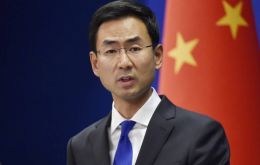
The Chinese Foreign Ministry said that the move by the three biggest US airlines to change how they refer to Taiwan on their booking websites was a “positive development”.
-
Wednesday, July 25th 2018 - 06:25 UTC
Trump pledges US$ 12bn to help farmers hit by trade war with China
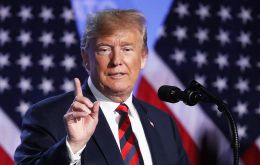
The Trump administration on Tuesday said it will use a Great Depression-era program to pay up to US$ 12 billion to help U.S. farmers weather a growing trade war with China, the European Union and others that the president began. It is a clear signal the U.S. President Donald Trump is determined to stick with tariffs as his weapon of choice in the conflict.
